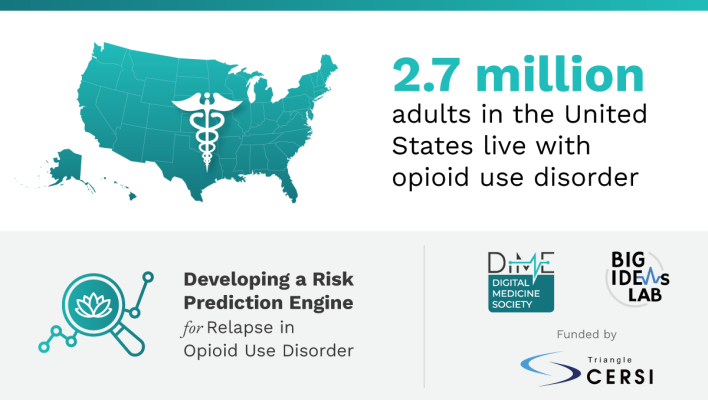
Leveraging digital tools to predict and prevent opioid relapse
Around 2.7 million adults in the US live with opioid use disorder (OUD). While OUD treatment options exist, 65-70% will experience relapse, putting individuals at a higher risk of overdose and death. We can do better, and we owe it to individuals living with OUD and their families to leverage innovative solutions to provide person-centered and accessible care when needed most.
What would a future look like if those living with OUD, their families, and their care teams could predict potential relapse and develop strategies to help?
The Digital Health Measurement Collaborative Community (DATAcc) by the Digital Medicine Society (DiMe) and our partners at Duke University’s Big Ideas Lab are collaborating to use digital tools to reduce relapse and improve targeted care strategies. Together, we are developing a risk prediction tool that will be able to identify when a person is experiencing a trigger for relapse and might need support during their recovery, based on data collected from consumer sensor-based digital health technologies (sDHTs), like GPS location, physical activity, sleep, or heart rate.
A key element of this work is building a responsible and evidence-based tool, starting with the data used to develop it. In this first year, through an FDA-funded project under Triangle CERSI, we are collecting the necessary evidence to identify the appropriate inputs for the model and define an ethical protocol for developing the risk prediction tool.
This tool has the potential to save lives, and we are proud to be leading this work.
Check out the FDA page to learn more about the project. We will also be publishing our results on the DATAcc project page.



